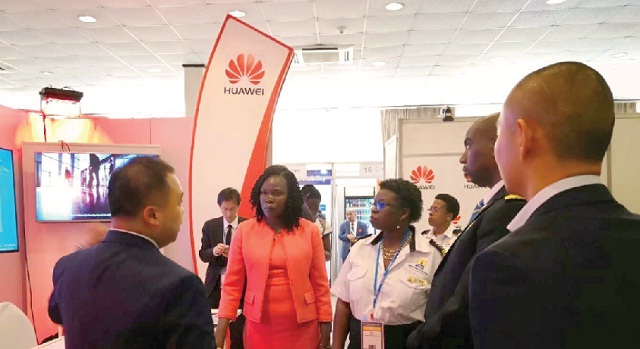
Businesses set to benefit from signed bilateral agreements
Kampala, Uganda | JULIUS BUSINGE | Nearly a dacade ago, Betty Kiguli, the procurement coordinator at Nice House of Plastics, hardly made a saving while clearing goods with customs officials.
But things have changed in the past four years since her company was certified as one of the Authorized Economic Operators, a programme run by the Uganda Revenue Authority in partnership with regional customs authorities. The programme aims to ease the cost of doing business by reducing the time of clearing goods with customs.
“…before this program came into play, URA would have an officer at the bonded warehouse,” she told The Independent on the sidelines of the just concluded 4th World Customs Global AEO Conference held in Kampala from March 14-16.
“But because of the trust they have in us they have let that go…we open our bonded warehouse, get our consignments and take them straight to the factory.”
Kiguli said, unlike before, there is fast clearance of goods and so is reduced costs in terms of timely deliveries since they no longer wait for URA to do assessments.
As a result, they have been able to save US$300 on each of the 400 containers of goods that they import annually.
Kiguli’s company is one of the 51 companies that have an AEO certificate and enjoying similar benefits accredited by the EAC customs authorities including URA.
Started in 2012 as a pilot project, the AEO initiative for Uganda has been hailed as one of the most developed in Africa.
Businesses that comply with customs laws and regulations under this programme benefit from customs preferential treatment such as fast clearance of goods through simplified procedures and reduced inspection by URA.
The program is derived from the World Customs Organization framework of standards.
Doris Akol, the commissioner general for URA said the AEO program was identified as a vehicle to be used by Customs to operationalise the ‘SAFE’ Framework.
She said the framework essentially works on the principle of cooperation first between customs administrations, customs and government agencies as well as customs and the business community.
In Uganda, Akol said the program has seen tremendous growth from 10 in 2012 to 51 AEOs to-date, with more interested to join the club.
“This is a sign that the private sector is embracing the culture of voluntary tax compliance that will in the end reduce the cost of tax administration at the URA,” Akol said, adding that the existing AEOs are already contributing 28% of the total national revenue collections.
In his speech at the conference, the Prime Minister of Uganda, Ruhakana Rugunda said the AEO program is one of those that can enhance efficiencies in international trade as a way to fasten the drive for trade facilitation and revenue generation.
“The integrated relationship among the supply chain actors espoused by the AEO programme envisions an unbreakable bond that will help us strengthen and secure global trade,” Rugunda said.
He said that voluntary compliance in international trade means that parties willingly offer to partner with customs and other regulatory agencies to manage risks associated with trade and therefore affords customs an opportunity to do away with most stringent regulatory controls.
The Secretary General of the World Customs Organization, Kunio Mikuriya said that by embracing the AEO program, Uganda and the rest of the world would ultimately benefit from economic growth opportunities that would emerge.
Mikuriya said that African leaders have put in place legal and policy framework regarding customs which he said will succeed alongside programs like AEO that are being implemented on the ground by customs officials.
Meanwhile, President Yoweri Museveni, who officially opened the conference, and sounding somewhat diversionary from the topic, said the problem of Africa is a small population that constrains consumption.
He said, however, women are now producing more children and that increasing Africa’s population would boost the continent’s economic growth targets.
He said, Africa which missed out on industrialization in the past has now woken up and is forming economic blocs like the East African Community, which has 170 million people, to promote production, trade and economic transformation.
“We are moving towards industrial…and digital revolution,” Museveni said.
 The Independent Uganda: You get the Truth we Pay the Price
The Independent Uganda: You get the Truth we Pay the Price


